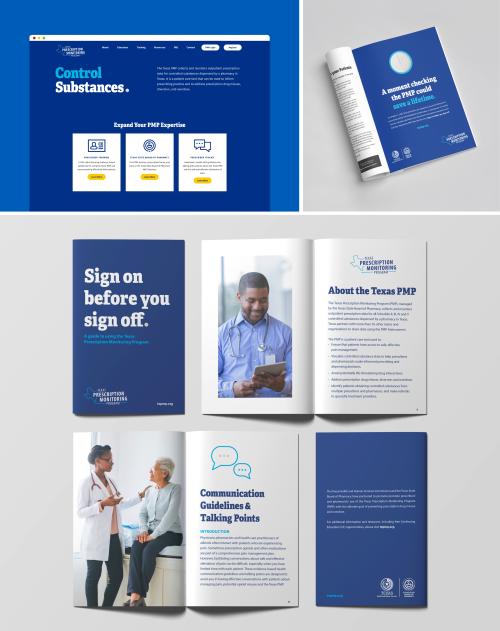Texas Prescription Monitoring Program
Engaging physicians and pharmacists in preventing prescription opioid misuse and overdose using the Texas PMP
Overview
The Texas PMP is a statewide electronic database that collects and monitors controlled substance dispensation. It also serves as a patient care tool to inform prescribing practice and to address prescription drug misuse, diversion, and overdose. The Texas PMP helps prescribers and pharmacists avoid potentially life-threatening drug interactions, decide when to make referrals to specialty treatment providers, and identify individuals obtaining controlled substances from multiple health care providers and pharmacies.
The CHC is funded by the Texas Health and Human Services Commission (HHSC) in partnership with the Texas State Board of Pharmacy to promote meaningful use of the Texas PMP, with the ultimate goal of preventing prescription drug misuse and overdose.
Expertise
- Quantitative research
- Qualitative research
- Creative strategy
- Campaign branding
- Graphic design
- Academic detailing
- Continuing education
- Campaign evaluation
Timeline

YEAR 1 (2017-2018)
- Formative research
- Creative development and testing
- Media plan targeting physicians

YEAR 2 (2018-2019)
- Campaign launch
- Academic detailing
- Promotional video series

YEAR 3 (2019-2020)
- Brand refresh
- Continuing medical education video

YEAR 4 (2020-2021)
- Expanded to new audiences, including pharmacists, educators, medical students, and residents
- Tailored ads in Dallas, Houston, and Austin
- Continuing medical education video

YEAR 5 (2021-2022)
- Continuing medical education video
- Website refresh

YEAR 6 (2022-2023)
- Update campaign creative

YEAR 7 (2023-2024)
- Creative testing and updates
- Summative evaluation
- Sustainability plan
Approach
Formative research with prescribers across the State of Texas revealed the following key persuasive messages:
- Benefits of using the Texas PMP for patients and prescribers
- Information about how using the Texas PMP protects prescribers’ practices
- Framing the Texas PMP as a public health tool to help address the opioid crisis
- Information and training on having challenging conversations with patients about prescription opioid misuse, addiction, and overdose
At campaign launch, only 46% of physicians and 73% of pharmacists were registered to use the Texas PMP. Early campaign messaging focused on promoting registration and emphasizing the benefits and impact of the Texas PMP.
In 2020, House Bill 2561 from the 85th Texas Legislature mandated that prescribers and pharmacists check the Texas PMP before prescribing or dispensing opioids, benzodiazepines, barbiturates or carisoprodol. This resulted in a significant increase in registrations and queries, allowing campaign focus to shift to promoting meaningful use of the Texas PMP as a patient care tool.

Materials

Impact
For this project, success is determined by a number of cumulative measures, including longitudinal funding commitment by HHSC, continuing education video completions, Texas PMP registrations and queries, and various media metrics.
$6.4M
HHSC campaign funding
6,300+
CE completions
88%
Physicians registered
Publications

Texas Prescription Monitoring Program (PMP): The Evaluation of a Statewide Campaign Aimed to Increase Prescriber Use of the PMP
Pounders, K., Mackert, M., Dove, S., Kirtz, S., & Hughes Wagner, J. (2024). The Texas Prescription Monitoring Program (PMP): The Evaluation of a Statewide Campaign Aimed to Increase Prescriber Use of the PMP. Texas Public Health Journal. 76(3), 26-29. https://research.ebsco.com/linkprocessor/plink?id=c3f59c71-6648-318d-b372-d925c8ef082c

Development of a health communication campaign to promote the Texas prescription monitoring program
Mackert, M., Pounders, K., Brown, L. E., Kirtz, S., Wagner, J. H., Ring, D., Hill, L., Wilcox, G., Murthy, D., Tierney, W., Innerarity, S., McGlone, M., Holleran Steiker, L. K., DeSalvo, K., Bernhardt, J. M., & Pretorius, K. (2020). Development of a health communication campaign to promote the Texas prescription monitoring program. Health marketing quarterly. 37(3), 222–231. https://doi.org/10.1080/07359683.2020.1802967

